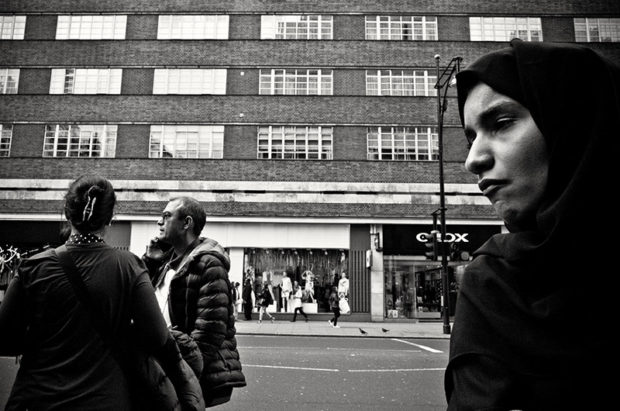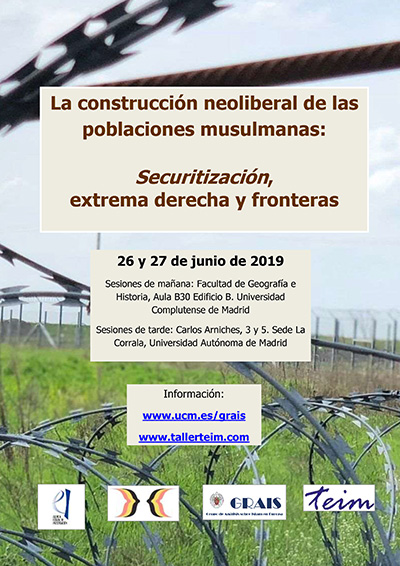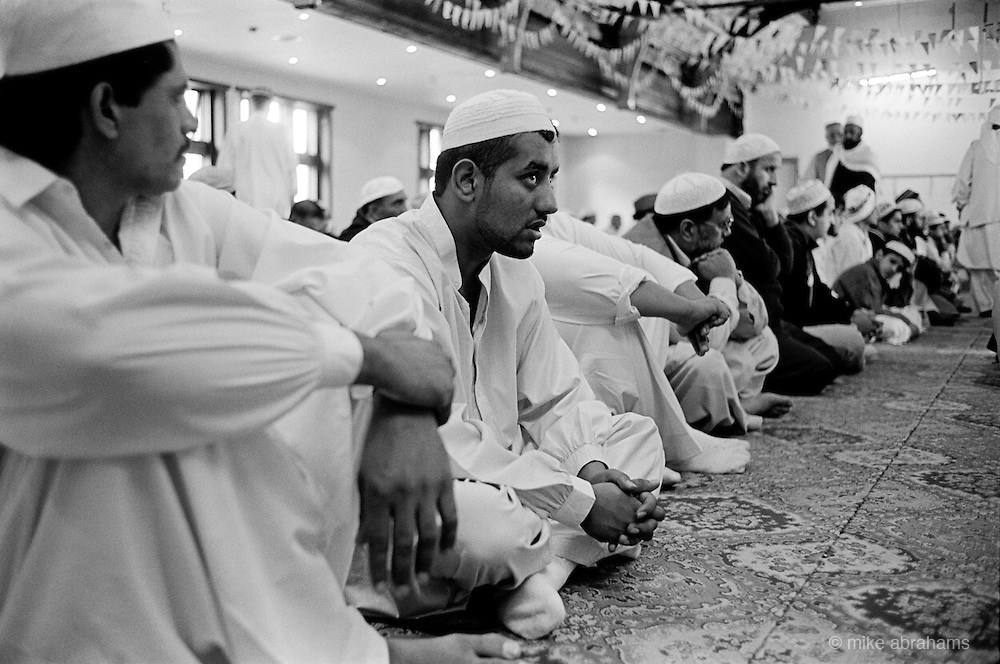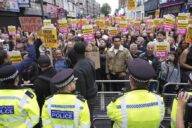As both the institutional and public interest for Islamophobia, and the programs for the detection and prevention of hate speech proliferate —something which is, of course, very welcome and necessary—, academic researchers and activists in the fight against this stigma attempt to go beyond these approaches and agree that it is a way more complex and deep phenomenon.
The problem does not only belong to the realm of speeches, nor it does only confine to Islam and Muslims. These are the premises of the international workshop La construcción neoliberal de las poblaciones musulmanas: securitización, extrema derecha y fronteras (The neoliberal construction of Muslims societies: securitization, right wing movements and frontiers), organized at the University Autonoma of Madrid and the University Complutense of Madrid on June 26th and 27th, 2019, by three research groups: the veteran Workshop of International Studies of the Mediterranean (TEIM) of the University Autonoma; the Research Group on Anthropology in Public Orientation of the same University; and the Group of Analysis on Islam in Europe (GRAIS) of the University Complutense.
To note the uniqueness of Islamophobia, as an analytically differentiated element from racism or xenophobia, continues to be a hard task in Spain. In a context so influenced by a revived national Catholicism, and by anticlericalism as an element of resistance, it is not always easy to prove that religion —and Islam in particular— can be a cause for stigma and social exclusion. An important part of those who consider themselves anti-racist are obviously –—from their secular position— more comfortable not having to stand in solidarity with a religious faith.
To note the uniqueness of Islamophobia, as an analytically differentiated element from racism or xenophobia, continues to be a hard task in Spain.
However, there is also the risk of falling into the opposite, considering Islamophobia as a unique phenomenon, unrelated in practice (not only from a theoretical perspective) to other forms of racism, and that would affect all Muslims, notwithstanding their national or ethnic origin, their gender or social class. This would represent a liberal approach, in line with some sectors of the Muslim establishments living in European societies. Islamophobia draws on the preexisting and current forms of racism, and is directly connected with the different neoliberal strategies of control and social hierarchization, both of Muslims and non-Muslims. Even though, of course, the Islamic elements are a main axis in the discourse and legitimation of these strategies.
Islamophobia as the axis of electoral gains
Who produces these discourses? The immediate response points out at the far Right, which, all across Europe, and in Spain as well, uses Islamophobia as their motto for social and electoral growth, as their predecessors did decades ago with antisemitism. However, the imaginaries that underline these speeches can be found across all of the political spectrum, even in the Left and far-Left. As mentioned several times throughout the seminar, the fights for gender equality and sexual freedom are being subject to an attempted hijacking in favor of Islamophobe and racist logics. The same thing is happening with the Left’s traditional claims, such as laicism.
Islamophobia draws on the preexisting and current forms of racism, and is directly connected with the different neoliberal strategies of control and social hierarchization, both of Muslims and non-Muslims.
This fuzzy transfer of claims has intensified by the blurring of the traditional political frontiers, leading to the phenomenon that some authors have called post-politics, anti-politics, or post-ideology, and that can be applied to both the Left and the Right. For example, the idea that governance is determined by a criterion of “efficient management” instead of by ethical positions, the look for strong leaders and personalism, or the appeal to emotions over rational arguments.
Islamophobia and its “sister” logics
However, Islamophobia and its “sister” logics don’t rely only on narratives. Moreover, as pointed out recently in an excellent book by Narzanin Massoumi, Tom Mills and David Miller, the main support for Islamophobia, and the least studied, aren’t speeches, but the institutional practices. Practices that don’t usually come from alt-right governments, and which aren’t usually explicit on the speech, but that put into practice everything that is defended by the racist narratives.
Two are the privileged scenarios for these institutional practices. One of them is the management of migrations and the astonishing coldness with which the European societies accept the division of the social body between those “with rights” (in a clear regression) and those “without rights”. Moreover, the naturalization of the death of the latter, to the point of considering a crime the mere action of trying to help them, in line with what Achille Mbembe has called necropolitics: to let the excluded die. This necropolitics includes not only the European Union, but also some of its adjacent countries.
According to the concept of securitization, an educated and socialized person of Islamic religion, non-regarding their real religious practice or its subjective importance, is liable to become “radical” at any moment.
The second scenario is the securitization affecting mainly the Muslim population, and which is justified on the idea of “radicalization”. According to this concept in vogue, an educated and socialized person of Islamic religion, non-regarding their real religious practice or its subjective importance, is liable to become “radical” at any moment, and thus, to become a criminal. As if Islam was a sort of latent psychosis.
He might also avoid to develop all the perverse potential of his religion, in which case he will be a “moderate Muslim”. The teaching field is considered a privileged space for monitoring, correction, and, if it comes to it, report the students subject to become “radicals”. These are, obviously, those considered Muslims by the school administration due to their family’s origins. In Spain, Catalonia has pioneered the application of this logics of pre-emptive criminalization of the students, through the “protocol of Islamist radicalization” (PRODERAI), later on called “protocol for detecting Islamist radicalization in schools”.
Conclusions
The conclusions of the workshop, which gathered fifteen researchers and activists from different fields and universities, both from Spain and abroad, stressed the need to analyze Islamophobia through wider racist, sexist and (neo) colonial logics, through its connection with the neoliberal economy and the retreat of the rules of law, as well as the open or subtle practices in which it relies, especially the institutions. The seminar concluded by highlighting the need to establish a two-way relationship between analysis and action, so that academic workshops have a transforming social impact, that goes beyond the production and reproduction of academic knowledge.
Daniel Gil-Benumeya


















No Comments